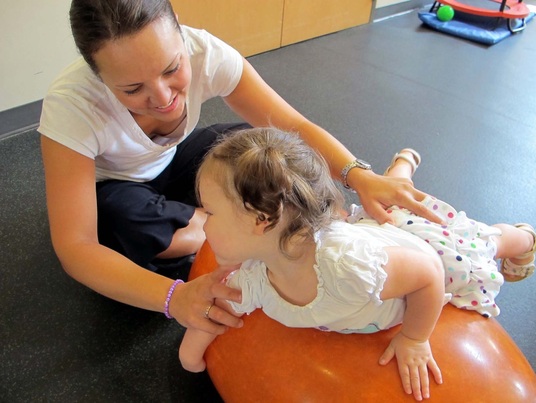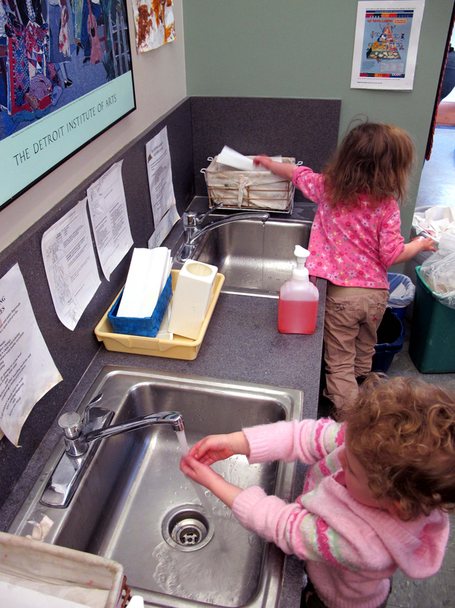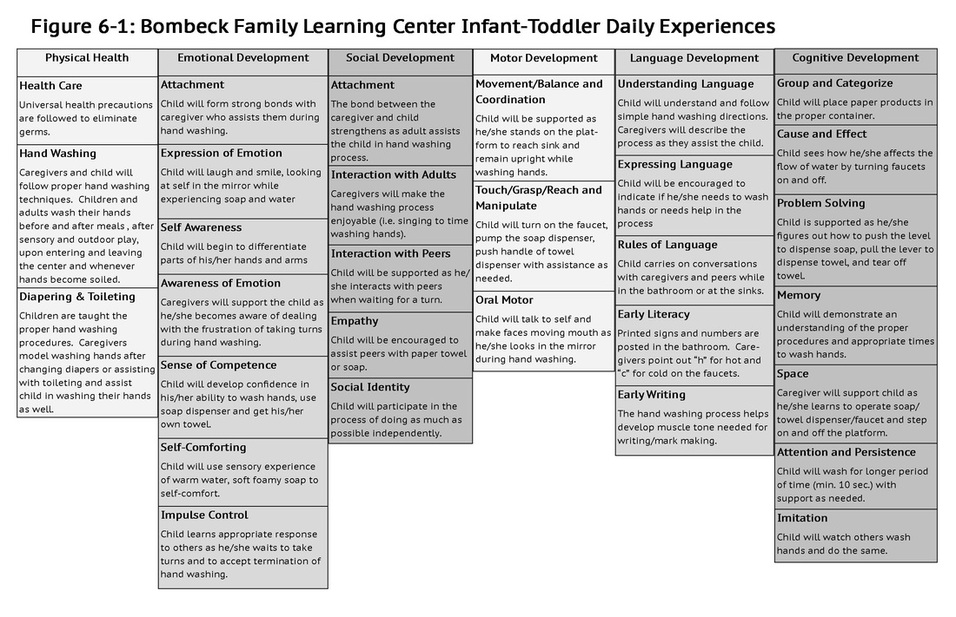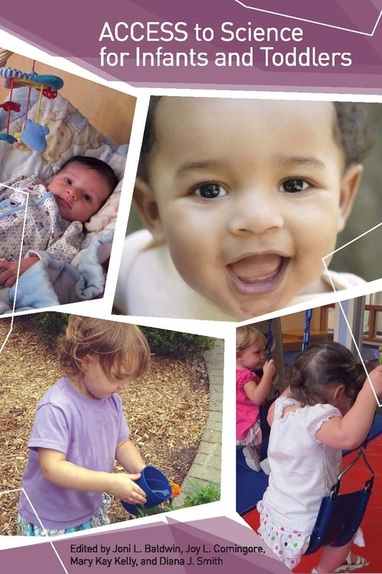INFANTS & TODDLERS
ASSESSMENT-SUPPORTED
Assessment across all age levels is important for tracking development and understanding what a child knows. It also shows teachers how to plan future classroom activities. For infants and toddlers, tracking development can help identify red flags for childhood disorders such as Autism as well as other developmental delays addressed across one or more domains. Using formative tools helps teachers to understand how infant and toddlers are developing and what teachers need to work on specifically to help develop individual skills and plan future learning activities.
Using assessment to guide curriculum goals allow teachers the opportunity to know where children are developmentally and use the results to plan learning experiences around areas of need. Especially with infants and toddlers, it is important to individualize the curriculum and make sure that each child has the opportunity to work with teachers and other students to build on previous experiences that enhance development across all domains. Assessing infants and toddlers is more authentic when using an observational method because learning is not yet centered on academics but more on emotional growth and social interactions which occur every day in natural settings.
With infants and toddlers, it can be difficult to aggregate and analyze data as a whole class when most of a teacher's time is spent caring for the basic needs of individual children. It may not be appropriate to aggregate whole class information for infants and toddlers because the program is focused on the needs of individual children. Each infant is on an individual trajectory, and the curriculum for a 6 month old baby is dramatically different from a baby who is just 12 months older. Because of the degree of developmental difference at this age level, aggregated data for the whole class is not as useful as it is for older children.
CHILD-CENTERED PRACTICE
|
Teachers at the Bombeck Family Learning Center who work with infants and toddlers have a deep understanding and ability to support Ohio's Early Learning and Development Standards (Ohio Department of Education, 2012). These standards were developed by a group of early childhood stakeholders under the coordination of the Ohio Department of Education and are considered to be a model nationally for infant and toddler developmental expectations.
|
| ||
EMERGENT/NEGOTIATED CURRICULUM
Emergent curriculum with infants and toddlers is widely accepted and considered to be preferred practice for very young children. Infant and toddler teachers follow the children's lead in order to support their rapid development across domains. As children move from infancy into toddlerhood, their attention expands, and their interests become more diverse. Older infants and toddlers can show interest in a topic for investigation. For this age level the topics can spring from a favorite song or a toy that has sparked their interest. The investigations that toddlers complete tend to be very free-flowing and include a focus on how developmental skills can be addressed within the context of a very interesting topic of study. Science topics tend to be foundational but opportunities for vocabulary development are abundant.
DAILY ROUTINES
|
Teachers using ACCESS in infant and toddler classrooms describe the daily routine as an important vehicle for unifying the experiences of the children in the classroom. Because of the job of infants and toddlers is to make sense of their world, their curriculum reflects authentic and naturally occurring events within the classroom routine. ACCESS for infants and toddlers is "routine-based" and relies on teachers who are intentional in looking for opportunities to support development across all domains. To this end, Bombeck Center infant and toddler teachers have created a series of documents that show clearly how a routine such as hand washing helps children understand the sequence of the day and therefore be able to anticipate what will come next. The charts show how daily routines provide learning experiences across all developmental domains for infants and toddlers (See Fig 6-1).
|
INVESTIGATIONS WITH INFANTS AND TODDLERS
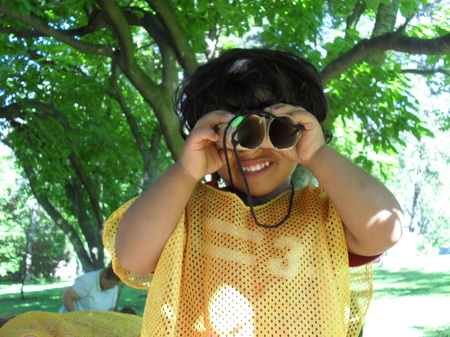
Addressing science topics with infants and toddlers is easier than it may seem. Taking everyday activities such as cooking or gardening can create a whole world of investigation for very young children who are trying to make sense of the world. Beginning with the children's interests and environments, teachers can make learning opportunities out of everyday experiences. When children are outside, for example, they notice things like trees, flowers and other plants. Taking this idea and creating a science investigation can give very young children many opportunities for authentic learning in a familiar environment.
PUBLICATION: ACCESS TO SCIENCE FOR INFANTS AND TODDLERS
LEARNING-INSPIRED NOT FORCED
Young children are unique learners who benefit most when they are inspired to learn. Forcing young children to learn is typically not productive and can be harmful. The ACCESS to Science Investigations have been developed to include very entitcing materials that most young children find hard to resist. We ask adults to stage the setting so that the materials entice children to want to participate in the learning experience.
After years of learning with young children, the creators of these investigations have come to understand that young learners are often highly motivated to explore the world around them especially when new and novel materials or "cool stuff" is included. Children need to hook new information onto something familiar which is why the topics chosen for the investigations are centered on the science that exists in the children's everyday world.
LEARNING-INSPIRED NOT FORCED
Some have asked why the investigations focus on science and not literacy or mathematics. Our goal is to provide experiences that have the most impact on how children's brains develop. We have come to understand that children who are exposed to a lot of words have more successful learning experiences in the future. The ACCESS to Science Investigations are designed to encourage adults and children to talk about new ideas. The materials are very hands-on, but the interaction leads to "minds-on" activity that comes when children explore important questions deeply. Mathematics and literacy are included in meaningful and connected ways throughout the investigations.
DESIGNED WITH DEVELOPMENT IN MIND
Children between the ages of birth and 8 are unique in the way they learn and develop. Teaching young learners using the same techniques as those used in older students is typically not effective and may even be harmful. Children in this age group have brains, nervous systems and muscles that are very different from older students. These differences cause children to need to move and talk more. Young learners also often have difficulty controlling impulses, understanding their emotions and sharing and taking turns with others. It is important for adults to understand that these traits are typical for the age. Development cannot be forced and should be looked at as opportunities for teaching and learning.
In order to support development, ACCESS to Science Investigations have been designed to allow children to move around and manipulate a wide variety of materials. Social interaction is encouraged as children talk with adults and with peers. The learning experiences are open-ended, and children have a high degree of success. The investigations are designed to be used with small groups so that children can be successful in developing social skills while they work with others. Materials have been selected that allow children to develop their hand muscles without straining them.
The role of the adults is to inspire inquiry in positive and inviting ways. Young children learn to be friendly and gentle from friendly and gentle adults. Our hope is that adults will help children to continue.
In order to support development, ACCESS to Science Investigations have been designed to allow children to move around and manipulate a wide variety of materials. Social interaction is encouraged as children talk with adults and with peers. The learning experiences are open-ended, and children have a high degree of success. The investigations are designed to be used with small groups so that children can be successful in developing social skills while they work with others. Materials have been selected that allow children to develop their hand muscles without straining them.
The role of the adults is to inspire inquiry in positive and inviting ways. Young children learn to be friendly and gentle from friendly and gentle adults. Our hope is that adults will help children to continue.
To learn more about these investigations that contain experience cards with step by step directions for the adults to engage in science based learning for infants/toddlers, please visit our store or purchase the book below.
ACCESS to Science for Infants and Toddlers
|
The investigations in this publication are designed to be used by teachers, family child care providers and others who work with and care for young children, specifically infants and toddlers. Each investigation contains a series of engaging, open-ended experiences that inspire curiosity and inquiry as young children investigate important science topics. Examples include using water in various ways, what different things our hands can do and build, music and movement, rolling, using the 5 senses, spinning and exploring textures. This book is part of a 2 part series. Please see ACCESS to Life Science, which has been designed for older children.
Authors: Baldwin, Comingore, Adams, Kelly, Smith |

